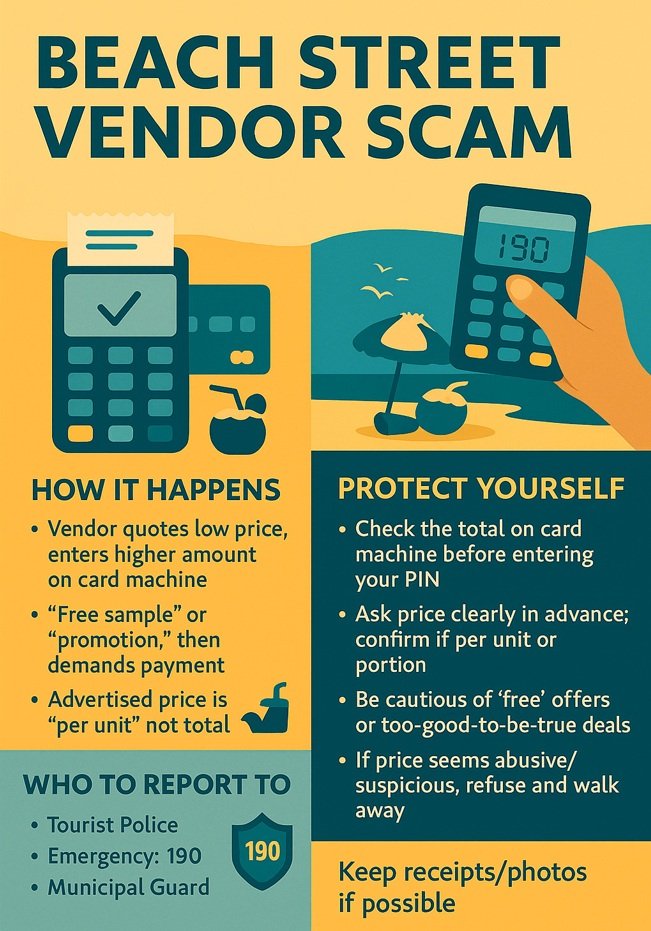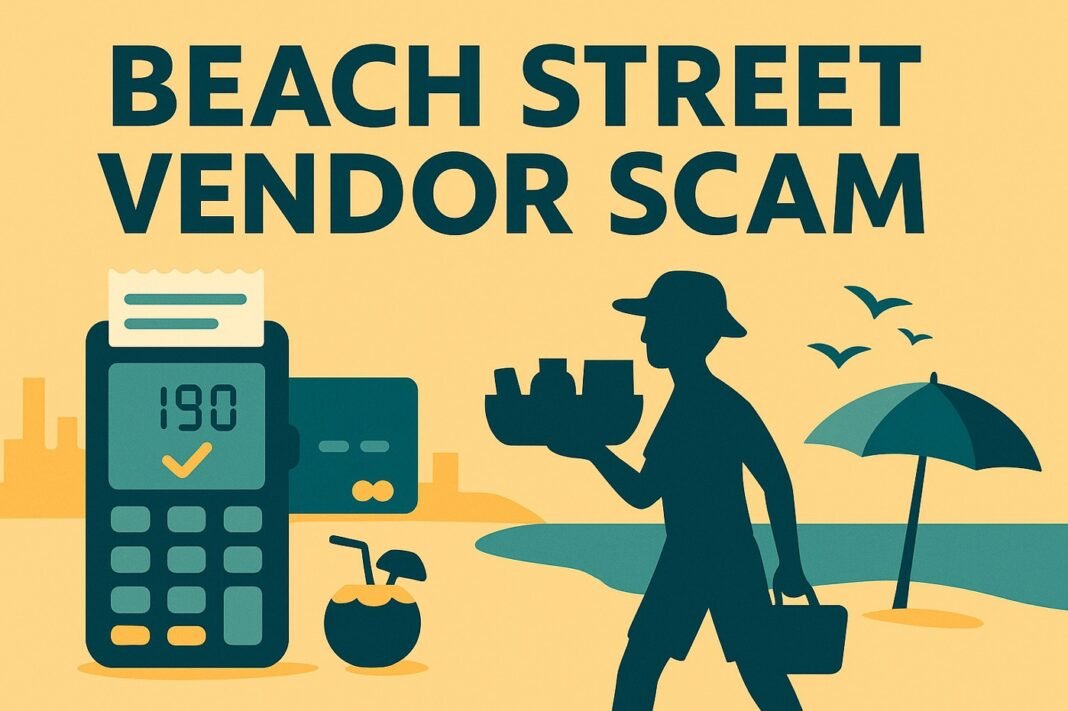Online scams have become increasingly common, demanding greater attention to the links and online content we interact with daily. Cybercriminals are constantly creating new methods to deceive people for financial gain, ranging from falsified payment receipts to fake technician impersonations. In Brazil, around 71% of the population has already fallen victim to this type of crime, which shows the need for caution when clicking on links in WhatsApp messages, emails, or SMS, as well as avoiding sharing personal information with strangers. To reduce risks, it is essential to understand how these scams work, recognize their main types, learn what to do if you are targeted, and adopt preventive measures to protect your data and avoid financial losses.
This article is part of a series on digital security. You can read the other texts here.
This Content Is Only For Subscribers
To unlock this content, subscribe to INTERLIRA Reports.
Beach Street Vendor Scam
On Rio’s beaches, street vendors – known as ambulantes in Brazil – are a common sight, offering drinks, snacks, or even seafood to tourists. While many operate legally, some take advantage of visitors through fraudulent practices. One of the most frequent scams occurs when vendors deliberately lie about the price of what they are selling. For example, they may say that a dish costs a small amount but then enter a much higher value on the card machine. They might also advertise something as a “promotion” or “free tasting” and later demand payment.
– How to protect yourself
• Always confirm the total on the card machine before entering your PIN.
• Be cautious of vendors offering “free” products or deals that sound too good to be true.
• Ask for the price clearly in advance and double-check if it is “per unit” or “per portion.”
• If the price seems abusive or suspicious, refuse the purchase.
– Who to report to
Victims should report incidents to the Tourist Police in Rio de Janeiro or call the emergency number 190. Complaints can also be filed with the Municipal Guard.





